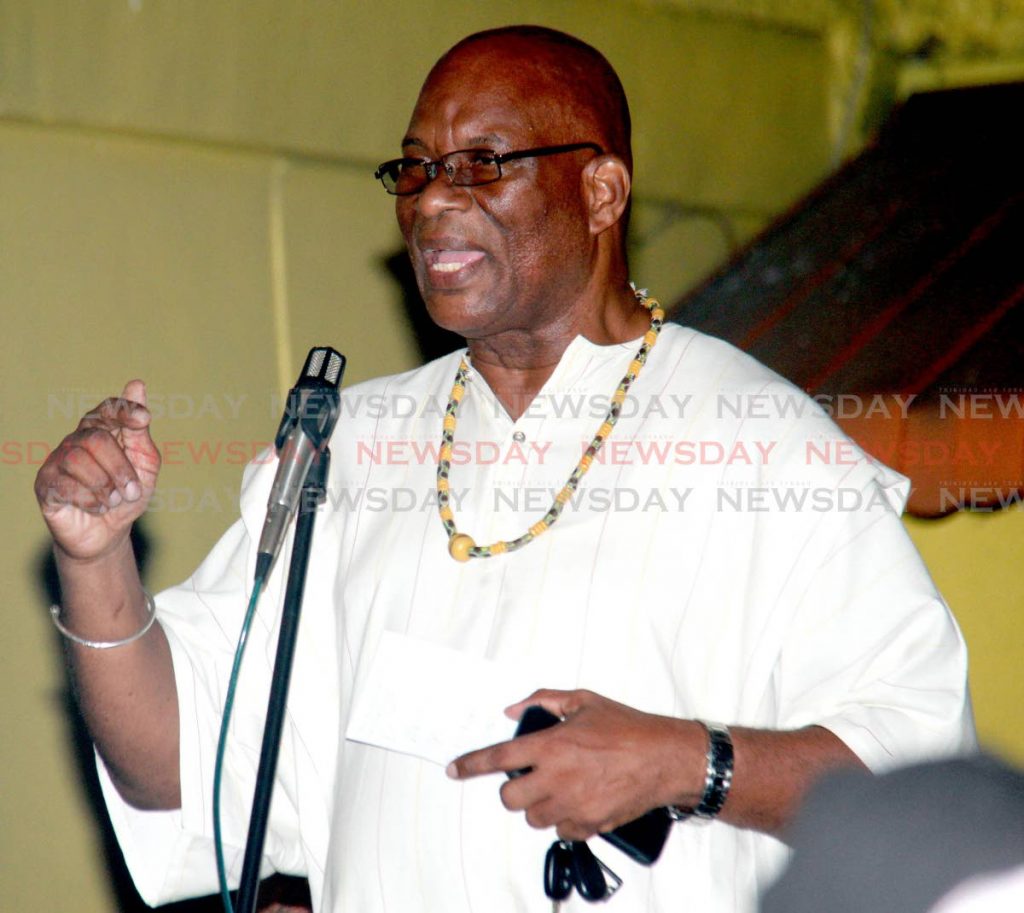Annisette: Politicians can't solve labour issues

General Secretary of the National Trade Union Centre (NATUC) Michael Annisette believes the solutions to TT's employment and labour issues cannot be found by politicians.
Annisette, along with Minister of Labour and Small Enterprise Development Jennifer Baptiste-Primus, spoke about regional labour issues at the Caribbean Workers' Forum at Cipriani College of Labour and Co-operative Studies last Thursday.
Annisette said he was proud of the forum because it took some time to materialise.
"Let's sit down and critically analyse the world of work. Solutions cannot be found by politicians but when we as a society put our collective wisdom together."
He said people should ask themselves if the current political system was what they wanted as a society.
"We inherited a foreign political system that does not meet our cultural needs. No matter where you are in the Caribbean, working people suffer the same."
Baptiste-Primus said the government's approach had been to address industrial relations systems. A Cipriani College graduate, she said the industrial relations framework of a country must meet local and global needs while creating an environment for working people to thrive. She added that though she had been accused of "just consulting," her office has had 21 industrial-relations-related consultations with trade unions and other stakeholders.
"It's not unusual in Trinidad for trade unions to wait more than five years for recognition. I have always had a personal issue with this, since most of the members of the Registration, Recognition and Certification Board are trade unionists.
"We have set a goal to bring that waiting time down to six months. We have also given attention to the retrenchment and severance benefits regime."
She said her office had made advancements in the labour market and viewed labour issues as critical.
"All workers in TT must enjoy certain basic terms of employment to limit worker exploitation. We see that technological advancement and increase in workers' productivity have not been reflected in workers' wages."
Director of the International Labour Organisation Caribbean office Claudia Coenjaerts said the forum could not come at a more timely moment.
"We see ourselves in a very, very rapidly changing world of work. Too often globalisation means competition for foreign investment and a race to the bottom. However, managing technological advancement with the world of work is necessary."
She said trade unions were working with academics to find solutions is a step in the right direction.
"We're working to create new, innovative and green jobs. People say that with the Paris Agreement six million jobs will be gone, but 24 million jobs will be created."
Chairman of the college's board Dr Hyacinth Guy said the college is determined to acknowledge the challenges faced by working people in TT's "dynamic" society.
"The college has a role to play in giving a voice to working people. We can, through forums like these, discover the means to social justice."
Akins Vidale, co-ordinator of the college's Elma Francois Institute, said organising the forum was an interesting journey which showed the visionary leadership at the college.
The forum, which began on Thursday and ended on Monday brought together presenters who included lawyers and academics to discuss growth and development in the labour sector. The theme was Wealth, Productivity and Social Protection: A Conversation on the Evolution of the 21st Century Caribbean Economy and the role of Workers and their Institutions.

Comments
"Annisette: Politicians can't solve labour issues"